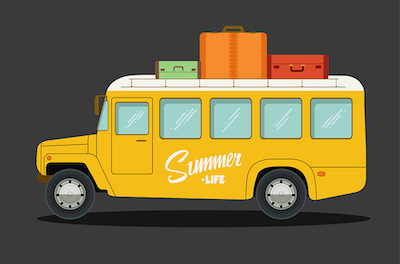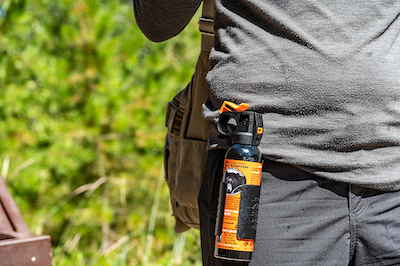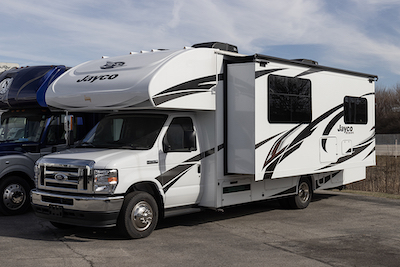The open road calls to many, and with the increasing popularity of remote work and digital nomad lifestyles, more people are considering mobile living options. Among the top choices for those seeking a home on wheels are recreational vehicles (RVs) and skoolies. Both options offer their own unique advantages and challenges, making it essential for potential owners to weigh their options carefully. In this article, we will explore the differences between RVs and skoolies, and provide some guidance on choosing the right mobile home for your needs and preferences.
What is an RV?
Recreational vehicles, or RVs, are vehicles designed specifically for leisure travel and camping. They come in various shapes and sizes, with some being motorized (known as motorhomes) and others designed to be towed (like travel trailers or fifth-wheels). RVs often include many of the amenities found in a traditional home, such as sleeping quarters, a kitchen, and bathroom facilities. They are built for comfort and convenience, making them a popular choice for those who wish to explore the country while maintaining a sense of home.
What is a Skoolie?
A skoolie is a converted school bus that has been transformed into a living space. These conversions are typically completed by the owners themselves, allowing them to customize the layout and design to fit their specific needs and preferences. Skoolies can range from simple conversions with minimal amenities to luxurious and intricate designs featuring all the comforts of a modern home. The skoolie movement has gained popularity in recent years, as more people seek alternative and affordable housing options that allow for a nomadic lifestyle.
RV vs Skoolie: Pros and Cons
- Cost
RV: RVs can vary greatly in price, depending on the size, features, and brand. New RVs can range from $10,000 for a basic travel trailer to over $1 million for a high-end motorhome. However, used RVs are available at significantly lower prices, with many older models in decent condition available for under $10,000. It’s important to consider not only the initial purchase price but also the ongoing costs of maintenance, insurance, and registration.
Skoolie: Skoolies can be a more affordable option, especially for those willing to put in the time and effort to complete the conversion themselves. Used school buses can be purchased for as little as $3,000, with conversion costs varying depending on the complexity of the design and the materials used. While the initial cost of a skoolie may be lower, keep in mind that older buses may require more maintenance and repairs over time.
- Customization
RV: RVs are manufactured with a specific layout and design in mind. While there is some variation among models, the options for customization are generally limited. This can be a disadvantage for those who have specific needs or preferences for their living space. Additionally, making significant changes to an RV’s interior can be costly and may void warranties.
Skoolie: The greatest advantage of a skoolie is the ability to completely customize the layout and design. This allows for a living space that is tailored to the individual’s needs and preferences, and can even be adapted over time. This level of customization requires a significant amount of planning, creativity, and work, but it can be a rewarding and fulfilling process for those who enjoy DIY projects.
- Size and Mobility
RV: RVs come in a wide range of sizes, from compact travel trailers to massive motorhomes. This allows for greater flexibility in terms of living space and mobility. Smaller RVs are generally easier to maneuver and park, while larger models offer more living space and amenities. When choosing an RV, it’s important to consider how size will impact your ability to travel and find suitable parking or camping spots.
Skoolie: School buses are typically larger than most RVs, providing ample living space for those who desire it. However, this size can also be a disadvantage, as it can make driving and parking more challenging, especially in urban environments. Additionally, the height of a skoolie may limit access to certain roads, bridges, or tunnels, which can impact travel routes and plans.
- Insulation and Climate Control
RV: Most RVs are designed with insulation and climate control systems in place to ensure a comfortable living environment, regardless of the weather outside. These systems are typically built into the structure, making it easier to maintain a consistent temperature and avoid issues with condensation.
Skoolie: Insulation and climate control can be more challenging in a skoolie conversion, as school buses are not originally designed for living purposes. Owners will need to carefully plan and install insulation, heating, and cooling systems to ensure a comfortable living environment. This can be a complex and time-consuming process but is essential for those planning to live in their skoolie year-round or in extreme climates.
- Community and Support
RV: The RV community is well-established, with numerous resources available for new and experienced RV owners alike. Online forums, social media groups, and clubs provide a wealth of knowledge and support for those navigating the world of RV living. Additionally, RV-specific services, such as maintenance and repair shops, are widely available, making it easier to address any issues that may arise.
Skoolie: While the skoolie community is smaller and less established than the RV community, it is growing rapidly, with many passionate and supportive members. Skoolie-specific resources are becoming more prevalent, and the community is known for its willingness to share knowledge and offer assistance to fellow skoolie owners. However, finding skoolie-specific services, like maintenance and repair shops, can be more challenging, and owners may need to rely on their own skills and resourcefulness to address issues.
Choosing between an RV and a skoolie ultimately depends on your individual needs, preferences, and priorities. RVs offer a turnkey solution with established support systems and a range of sizes and styles to choose from. Skoolies, on the other hand, provide the opportunity for complete customization and a unique living space but require a significant amount of time, effort, and resourcefulness to create and maintain.
Both options have their advantages and challenges, so it’s important to carefully consider what type of mobile home will best suit your lifestyle and goals. By understanding the differences between RVs and skoolies, you can make an informed decision and embark on the exciting journey of life on the open road.












